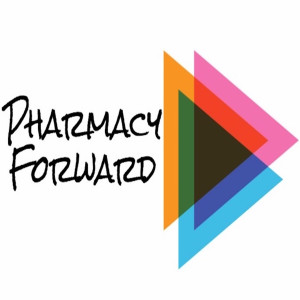
- Podcast Features
-
Monetization
-
Ads Marketplace
Join Ads Marketplace to earn through podcast sponsorships.
-
PodAds
Manage your ads with dynamic ad insertion capability.
-
Apple Podcasts Subscriptions Integration
Monetize with Apple Podcasts Subscriptions via Podbean.
-
Live Streaming
Earn rewards and recurring income from Fan Club membership.
-
Ads Marketplace
- Podbean App
-
Help and Support
-
Help Center
Get the answers and support you need.
-
Podbean Academy
Resources and guides to launch, grow, and monetize podcast.
-
Podbean Blog
Stay updated with the latest podcasting tips and trends.
-
What’s New
Check out our newest and recently released features!
-
Podcasting Smarter
Podcast interviews, best practices, and helpful tips.
-
Help Center
-
Popular Topics
-
How to Start a Podcast
The step-by-step guide to start your own podcast.
-
How to Start a Live Podcast
Create the best live podcast and engage your audience.
-
How to Monetize a Podcast
Tips on making the decision to monetize your podcast.
-
How to Promote Your Podcast
The best ways to get more eyes and ears on your podcast.
-
Podcast Advertising 101
Everything you need to know about podcast advertising.
-
Mobile Podcast Recording Guide
The ultimate guide to recording a podcast on your phone.
-
How to Use Group Recording
Steps to set up and use group recording in the Podbean app.
-
How to Start a Podcast
-
Podcasting
- Podcast Features
-
Monetization
-
Ads Marketplace
Join Ads Marketplace to earn through podcast sponsorships.
-
PodAds
Manage your ads with dynamic ad insertion capability.
-
Apple Podcasts Subscriptions Integration
Monetize with Apple Podcasts Subscriptions via Podbean.
-
Live Streaming
Earn rewards and recurring income from Fan Club membership.
-
Ads Marketplace
- Podbean App
- Advertisers
- Enterprise
- Pricing
-
Resources
-
Help and Support
-
Help Center
Get the answers and support you need.
-
Podbean Academy
Resources and guides to launch, grow, and monetize podcast.
-
Podbean Blog
Stay updated with the latest podcasting tips and trends.
-
What’s New
Check out our newest and recently released features!
-
Podcasting Smarter
Podcast interviews, best practices, and helpful tips.
-
Help Center
-
Popular Topics
-
How to Start a Podcast
The step-by-step guide to start your own podcast.
-
How to Start a Live Podcast
Create the best live podcast and engage your audience.
-
How to Monetize a Podcast
Tips on making the decision to monetize your podcast.
-
How to Promote Your Podcast
The best ways to get more eyes and ears on your podcast.
-
Podcast Advertising 101
Everything you need to know about podcast advertising.
-
Mobile Podcast Recording Guide
The ultimate guide to recording a podcast on your phone.
-
How to Use Group Recording
Steps to set up and use group recording in the Podbean app.
-
How to Start a Podcast
-
Help and Support
- Discover

Lea Eiland, PharmD, BCPS, BCPPS - Clinical Professor and Associate Department Head, Department of Pharmacy Practice, Auburn University Harrison School of Pharmacy — talks to us about the impact of generational differences ... and why these differences influences our patients' communication perferences, beliefs, and expectations.
Key Lessons:
- Our patients and workforce are more diverse than ever - including their generational experiences that influence their expectations related to work, healthcare delivery, and communication.
- Generational differences are generalizations - so not all people within a generation fit the stereotype and we need to be careful to not make assumptions.
- The generations currrently in the workforce and healthcare delivery systems are Traditionalist, Baby Boomers, Gen-X, Millennials, and Gen-Z/iGeneration.
- Comfort levels with digital technology and communication formats vary by generation. Older generations tend to prefer face-to-face and long-form written communications ... while more recent generations prefer short-form written communications. But everyone can learn to adapt!
- Recent generations prefer short, action-oriented, on-demand learning methods.
- Feedback preferences are also generational. Older generations generally desire less frequent feedback and more recent generations prefer more.
- Learning how to function well as a team requires a shared vision about the goals and valuing the contributions of each person on the team.
More Episodes
 2021-10-17
2021-10-17
 2021-09-14
2021-09-14
 2021-08-17
2021-08-17
 2021-05-11
2021-05-11
 2021-04-13
2021-04-13
 2021-03-16
2021-03-16
 2021-02-18
2021-02-18
 2021-01-27
2021-01-27
Create your
podcast in
minutes
- Full-featured podcast site
- Unlimited storage and bandwidth
- Comprehensive podcast stats
- Distribute to Apple Podcasts, Spotify, and more
- Make money with your podcast
It is Free
- Privacy Policy
- Cookie Policy
- Terms of Use
- Consent Preferences
- Copyright © 2015-2026 Podbean.com




